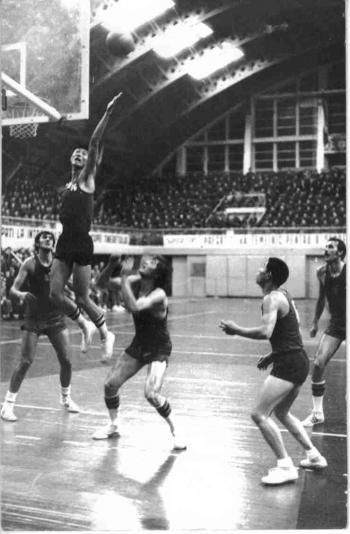Kai Chen, arguably the best forward on China’s national basketball team in the late 1970s, quit the team at the peak of his career because he wanted to be free of control from the Chinese Communist Party (CCP).
“I loved basketball, but my love for the sport was held hostage by evil forces against me,” said Chen. “They wanted to make me a cog in a giant machine—a tool and a slave.”
Chen’s professional basketball career began in early 1970, when the ruling regime set out to use sports to break China’s isolation. The national sports authorities sent coaches all over China to look for sports talent and the 16-year-old Chen, with his 6-foot 7-inch frame, was instantly selected for a training camp in Beijing.
Up until then, however, Chen wasn’t exactly a favorite of the Chinese authorities.
Born in Beijing, Chen’s family was considered problematic with its Kuo Ming Tang (KMT) past and numerous Taiwanese relatives. In his childhood, Chen and his family were exiled from Beijing to Tonghua, a small city bordering North Korea.
After graduating from middle school during the Cultural Revolution, Chen was once again sent to the countryside—as were all students in China at the time—to be “re-educated as peasants.” He worked in a grain depot and joined the depot’s basketball team, although professional sports were banned throughout the country.
“There was nothing to look forward to,” said Chen. “There was no indication whatsoever that I could achieve something through basketball. But indeed I kept practicing basketball all the time… I realized later that through basketball I could find a passionate expression of my own existence. I could feel that I was still alive.”
After completing training camp, only Chen and his best friend, Chen Bangxiao, were picked—Chen for the national basketball team and Bangxiao for the national track and field team. However, Bangxiao was kicked off the team within a year because his father, who had once served in the KMT army, was accused of hiding a weapon.
Tools for the Government
As for Chen, once the authorities discovered his KMT links he was not allowed to represent China abroad. Then, he too was dumped from the national team.
“I realized the evil side of all this,” said Chen. “To the communist authority, all athletes in China are only tools for the government. You can be abandoned at will by them with any excuse, at any time.”
Chen went on to play with numerous provincial and municipal basketball teams, but none were suitable. Later he was drafted by the Shenyang army team and sent to a combat unit for “re-education.” But due to the harsh conditions there, he was unable to play basketball and was hospitalized.
However, he was determined to return to basketball as he “vaguely sensed” that there was a mission to complete, both for Bangxiao and himself. So after recovering he joined the “August 1st Team,” the country’s top military team, and made his first trip abroad to Pakistan.
He helped the team win several national titles and was said to be the best forward in the country. But he was still shut out of the national team.
It was around this time, while playing against a U.S. team in Mexico, that Chen first encountered Americans, who he found to be “very different.” He was highly impressed by the personality and skill of these “very unique individuals” with their “rare vitality.”
“I was moved deeply by the simple fact that the American bench players cheered for the starters. I had never seen such a phenomenon in China. I was amazed that in the world there was indeed such a society in stark contrast to China. In that society, human beings sincerely wished others well.”
Chen’s basketball career peaked in 1978. He dominated his opponents in every game during the national championships that year.
“My defense was impenetrable. No one could do what I was able to do on the basketball court.”
Suddenly the authorities, conveniently forgetting that they had labeled him “a dangerous element,” offered him promotions and membership in the CCP. After the World Military Championships in Syria, Chen was allowed to return to the national team.
However, he refused to join the CCP and assimilate into the authorities’ rank—a rank that once treated him as an enemy. Nevertheless, numerous athletes surrendered to what Chen calls the “evil camp” of the Party.
In that society, he said, people “had to give in” because the authorities pressured people using their family as leverage. If one did not obey the authorities’ orders, living quarters would not be assigned for one’s wife and children.
“You could not maintain your integrity anymore. When I detected this insidious trap, I decided that I had to leave. I made a great moral choice at that time. At the peak of my basketball career, I decided to quit.
“Exactly because I truly loved basketball, I had to quit. All your life you wanted to do only one thing. You wanted to prove to yourself that you are indeed free. Freedom does exist, happiness does exist, truth does exist.”
Chen faked a heart problem, detached himself from the national team in 1979, and enrolled in the Beijing Institute of Physical Culture to fulfill his dream of completing his education. This is where he met his American wife, Susan.
Part two: Chen moves to the United States, writes an autobiography, becomes involved in human rights causes, and initiates the Global Olympic Freedom T-shirt Movement.
Read Part II here: Lighting the Path to Freedom: An Athlete Runs for Human Rights






